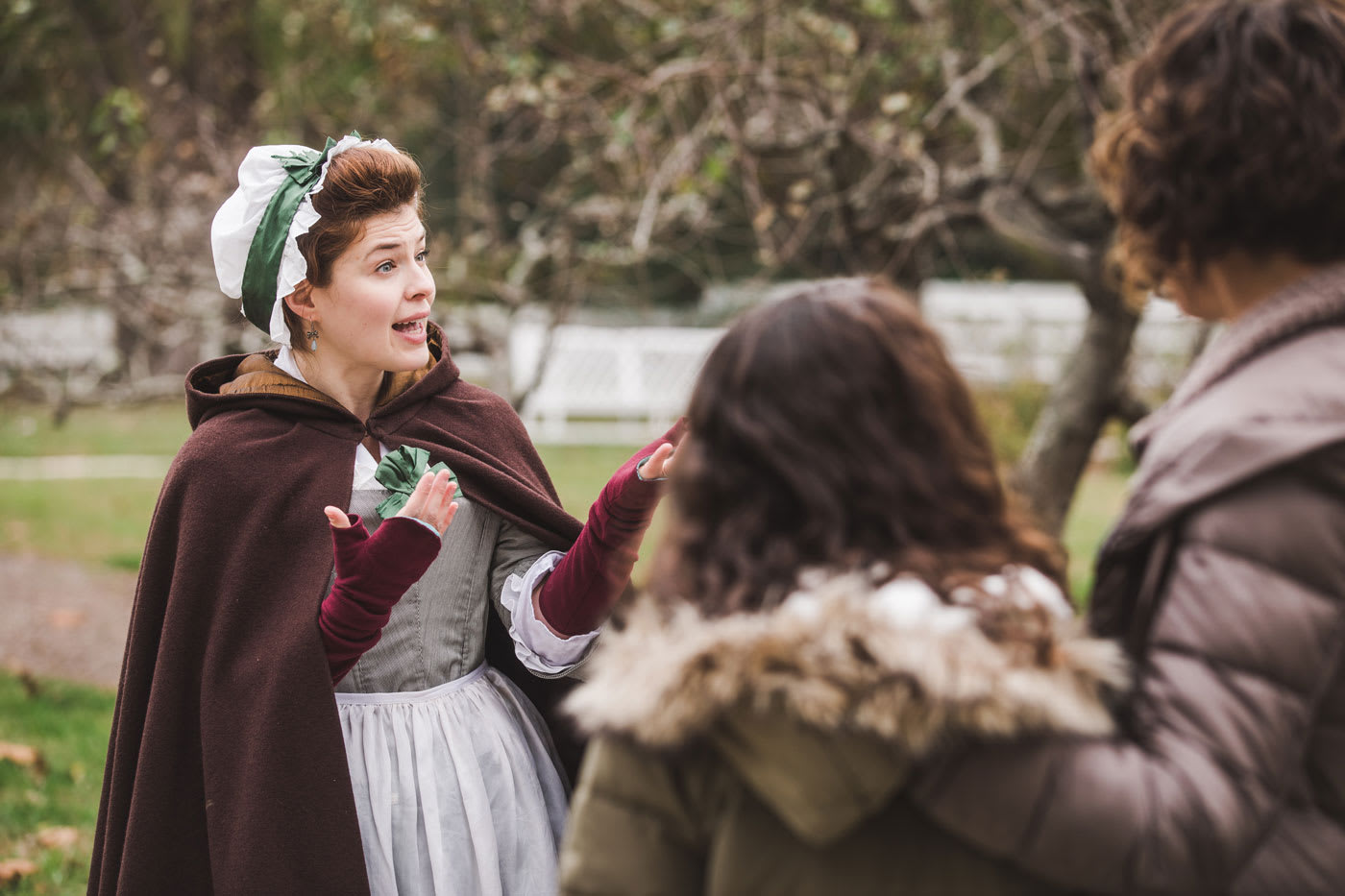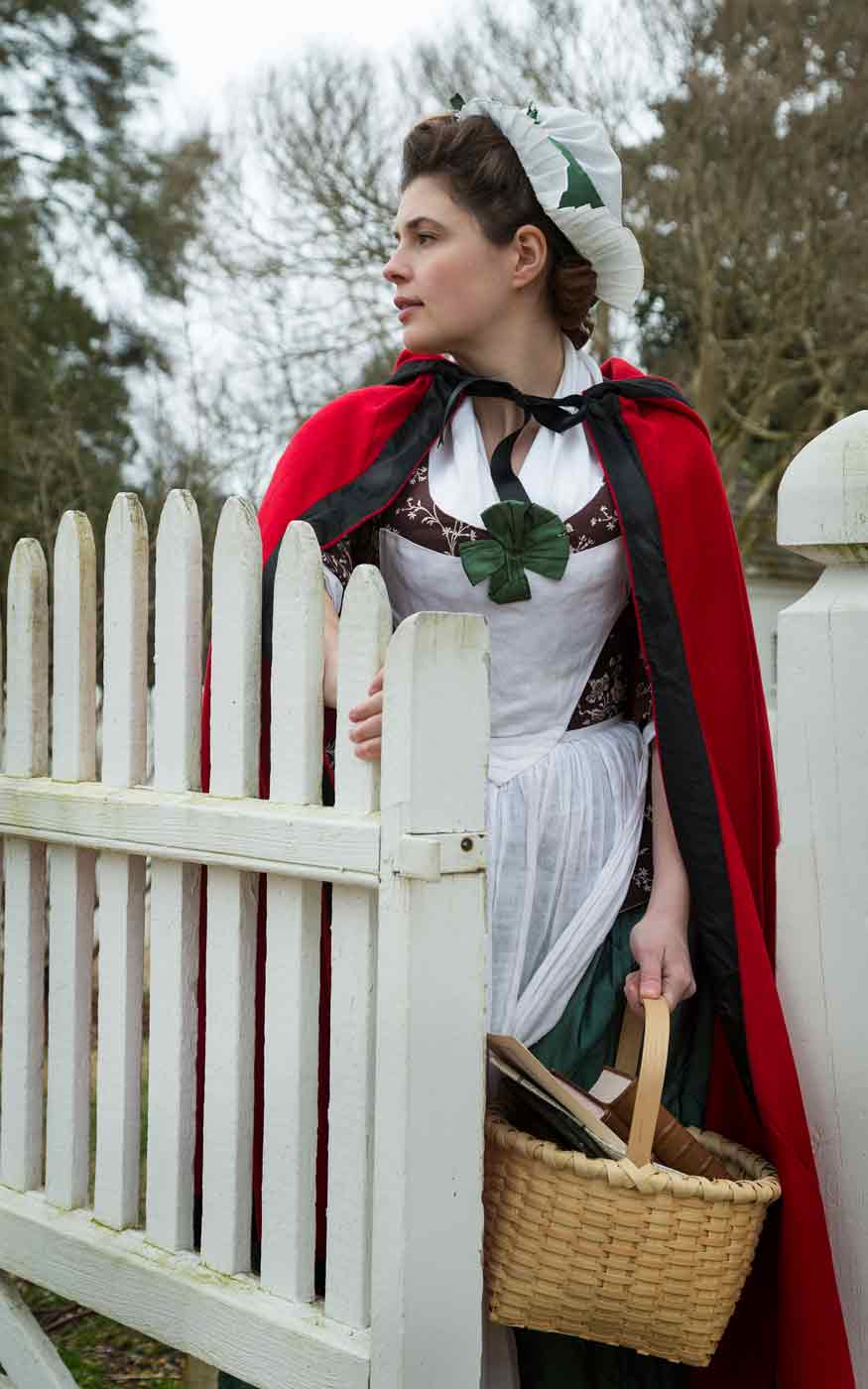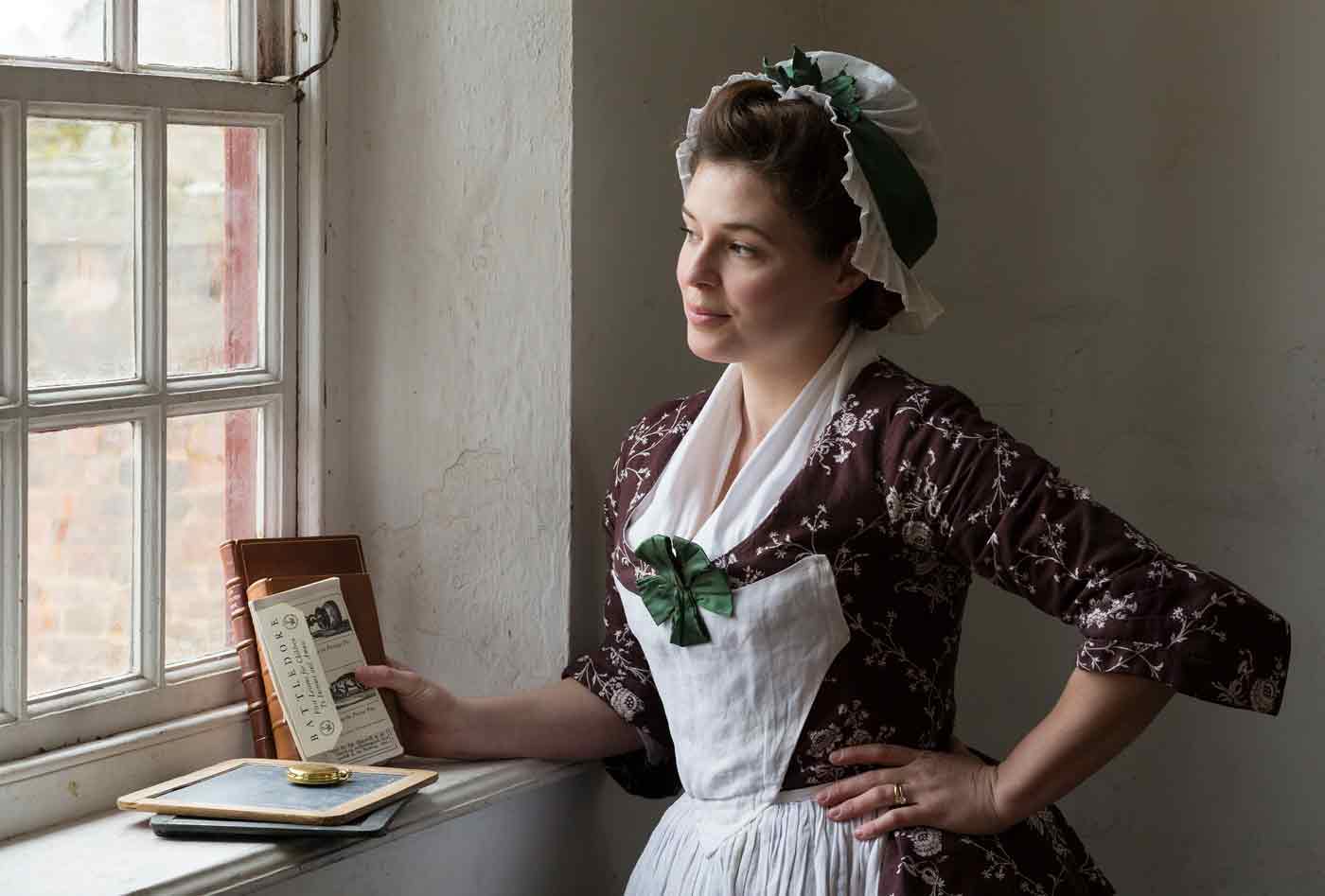When I tell people that my full-time job is being a character interpreter for The Colonial Williamsburg Foundation, I get lots of different responses. Sometimes people say, “How cute! I would love to play dress-up for work!” Other times, the response is a little more caustic: “Why would you want to portray a dead person in an old town? How does that help or make a difference in the world?” I’m not really surprised by these questions anymore, but I have had a great deal of time to think about my response. For me, being a character interpreter isn’t just about putting on old-fashioned clothes to look cute or talking about the past as if our history was a forgone conclusion; it’s so much more. Character interpretation is about using the past to create a meaningful conversation with the present.
My job isn’t to harangue guests about the history they don’t know, but to connect guests to our history and make them leave thinking. Essentially, I attempt to connect our past to our present by showing guests that the choices people made led to consequences. These consequences formed America as we know it, both the positive and the negative. You can read about this in books or talk about it, but I think it’s different when you can experience it for yourself. The connection between America’s past and present is palpable when you interact with someone from that past. Suddenly, history jumps off the page. No longer is America’s story just facts and dates, but a three-dimensional, complex, living human being. You can interact with the past, rather than just read about it. And when you interact, the past responds.
However, if our history is formed by people, that also means it’s flawed. It’s messy. It’s uncomfortable at times. If you’re having a conversation with a person of the past, you’ll encounter that very quickly. This is especially true if you find me at work on the Duke of Gloucester Street. When I leave my office, I cease to be Nicole Brown and start to become Ann Wager, school mistress of the first official school for African Americans in Virginia.

Ann’s story is one that is inseparable from the institution of slavery, and its relationship to religion and education in 18th-century Virginia. For the last 14 years of her life, Mrs. Wager was the sole teacher at the Williamsburg Bray School. Opened in 1760, the mission of the Bray School was to teach basic reading skills to free and enslaved African American children with the support of the Church of England. Ultimately, the school’s goal was to provide religious instruction while converting and assimilating students to Christian practice. The School’s participation in the institution of slavery is apparent in the teaching materials and decades of correspondence from the Williamsburg Bray School. In light of this, Ann’s experience teaching free black and enslaved students in 18th-century Williamsburg is intimately linked to her faith, her desire to conform those of African descent to one way of religious thinking, and individual resistance from enslaved and free blacks to this religious conformity.
These ideas can be extremely hard to think about, let alone talk about for both the guest and for me. For example, I am challenged to portray Ann Wager’s opinions and ideology in a way that makes people think critically without supporting her racist or bigoted opinions (such as “slaves are property not people”). Another struggle is getting guests to think about the varying perspectives coming out of the Bray School. However, the most challenging task of all is making people feel comfortable discussing deeply uncomfortable subjects while portraying Ann Wager.

I’m not saying that I expect our guests should be comfortable with the topics of slavery, religion, education, or any other difficult subject. Far from it. Rather, in portraying Ann Wager I want to demonstrate to guests that it’s both acceptable to be uncomfortable with parts of our past that are upsetting, while simultaneously expecting that we are going to talk about them.
So why do this? Why have that hard conversation? Why share it from a perspective that is so different from my own? For me, it’s because these conversations are as much a part of America’s history as the formation of Bill of Rights or the Constitution. By sharing Ann’s story, we all make connections about how our colonial past comes to shape the story and current history of America. The formation of the United States did not occur out of thin air. Like a chain, our present is connected to what proceeded it. In understanding Ann Wager, we gain insight into racism, faith, and education in the modern world, and where some of that mindset originated from in our shared past.
It’s okay to struggle with the idea that America’s past is flawed. I guarantee you that people in our past struggled with it too, and that the experience was as different for everyone in the 18th century as it is today. Portraying a white woman who is extremely privileged, I know the conversations I have about these topics are different than those my African American colleagues have with guests. However, it is every character interpreter’s responsibility to discuss things that make us uncomfortable. And it’s important to remember that these conversations were happening with our ancestors as much as they happen today. Uncomfortable conversations aren’t just part of history, they are our history. By asking questions and engaging in a conversation, we all learn more about our past, our present, and what we want our future to be.
Nicole Brown is a Nation Builder at Colonial Williamsburg and has been at the Foundation for almost six years. Nicole started in a short-term summer position, fell in love with the Foundation, and has never left. She specializes in understanding women’s legislation in Colonial America, as well as the relationship between religion, slavery, and education in 18th-century Virginia. For the past three years, Mrs. Brown has portrayed Ann Wager, the only teacher at the first official school for African Americans in Virginia. She will be continuing her research on Mrs. Wager and the Bray School this fall as a part-time graduate student at The College of William & Mary.
